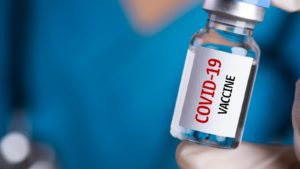Local production of COVID-19 vaccines in Ghana and other countries still on the agenda
 With the more virulent Delta variant of the COVID-19 which is associated with high morbidity and mortality rates spreading across Africa, countries such as Ghana, South Africa and Rwanda are exploring the possibility of locally producing COVID vaccines amidst challenges of vaccine shortages and procurement issues.
With the more virulent Delta variant of the COVID-19 which is associated with high morbidity and mortality rates spreading across Africa, countries such as Ghana, South Africa and Rwanda are exploring the possibility of locally producing COVID vaccines amidst challenges of vaccine shortages and procurement issues.
The World Health Organisation (WHO) has put diversification through local production as one way to deal with the pandemic even as frantic efforts are made to get more vaccines into the vaccine-challenged African continent.
Dr Matshidiso Moeti, WHO Regional Director for Africa, said local production is on the agenda and countries such as Ghana, South Africa and Rwanda are taking some steps towards fulfilling this agenda.
She said these in response to a question by the ghanabusinessnews.com on what is being done about the local production COVID vaccines due to vaccine shortages and procurement challenges in African countries such as Ghana.
Addressing a virtual media briefing held by the WHO for African journalists, Dr. Moeti said South Africa is working with France, the European Union, and some local pharmacies to look at the issue of the local production of vaccines and local training to help in this direction.
She said the issue of local production within Africa is not to only focus on the production of the COVID vaccines but also on the local production of other vaccines and drugs in relation to other health issues.
She touched on the urgent need to get in more vaccines into the continent but added that even as the COVID-19 cases are rising there are signs of progress on vaccine deliveries to the continent.
Dr. Moeti touched on fact that Africa marked its worst pandemic week ever, and have risen for seven consecutive weeks since the onset of the third wave on May 3, 2021.
Noting that 16 African countries are now in resurgence and the Delta variant has been detected in a number of them.
“Africa has just marked the continent’s most dire pandemic week ever. But the worst is yet to come as the fast-moving third wave continues to gain speed and new ground,” Dr Moeti added.
“The end to this precipitous rise is still weeks away. Cases are doubling now every 18 days, compared with every 21 days only a week ago. We can still break the chain of transmission by testing, isolating contacts and cases and following key public health measures.”
She noted that while vaccination rates remain low in Africa, there are hopeful signs as vaccine deliveries from the COVAX Facility are gathering momentum.
Dr Moeti said in the past two weeks, more than 1.6 million doses were delivered to Africa through COVAX and more than 20 million Johnson & Johnson/Janssen vaccine and Pfizer-BioNTech vaccine doses are expected to arrive imminently from the United States through COVAX, in coordination with the African Union.
“COVAX partners are working around the clock to clinch dose-sharing pledges and procurement deals with manufacturers to ensure that the most vulnerable Africans get a COVID-19 vaccination quickly,” she added.
According to Dr. Moeti, “with much larger COVID-19 vaccine deliveries expected to arrive in July and August, African countries must use this time to prepare to rapidly expand the roll-out.”
“Governments and partners can do this by planning to expand vaccination sites, improving cold chain capacities beyond capital cities, sensitizing communities to boost vaccine confidence and demand, and ensuring that operational funding is ready to go when it is needed.”
She added that the WHO has been working with countries to conduct reviews of the first phase of the rollout so that they can implement the lessons learned during this important second phase.
So far, 66 million doses have been delivered to Africa, including 40 million doses secured through bilateral deals and 25 million COVAX-supplied doses and 800 000 doses supplied by the African Union African Vaccine Acquisition Task Team.
The 50 million doses administered to date account for just 1.6% of doses administered globally. Sixteen million, or less than 2%, of Africans are now fully vaccinated.
Nineteen countries have used more than 80% of their COVAX-supplied doses, while 31 countries have used more than 50%.
Ms Aurélia Nguyen, Managing Director, Office of the COVAX Facility, who also spoke at the media briefing, said different COVID vaccines are now available and by the end of this year, Africa is expected to benefit from more vaccines supplies.
Professor Tulio de Oliveira, Director of the KwaZulu-Natal Research and Innovation Sequencing Platform at the University of KwaZulu-Natal in South Africa, addressing the journalists said the Delta strain is fast increasing and has started dominating all regions of Africa.
Other experts who were present to respond to questions from the media were Dr Richard Mihigo, Coordinator, Immunization and Vaccines Development Programme, WHO Regional Office for Africa; Dr Thierno Balde, Team Leader, Operational Partnerships, WHO Regional Office for Africa; and Dr Nicksy Gumede-Moeletsi, Regional Virologist, WHO Regional Office for Africa.
Meanwhile, on June 21, the Coalition for Dialogue on Africa (CoDA and the Igbinedion University, Okada, in Edo State, Nigeria, signed an agreement to initiate an Africa vaccines development, production and distribution.
A Task Team was also launched to lead the effort.
By Eunice Menka
